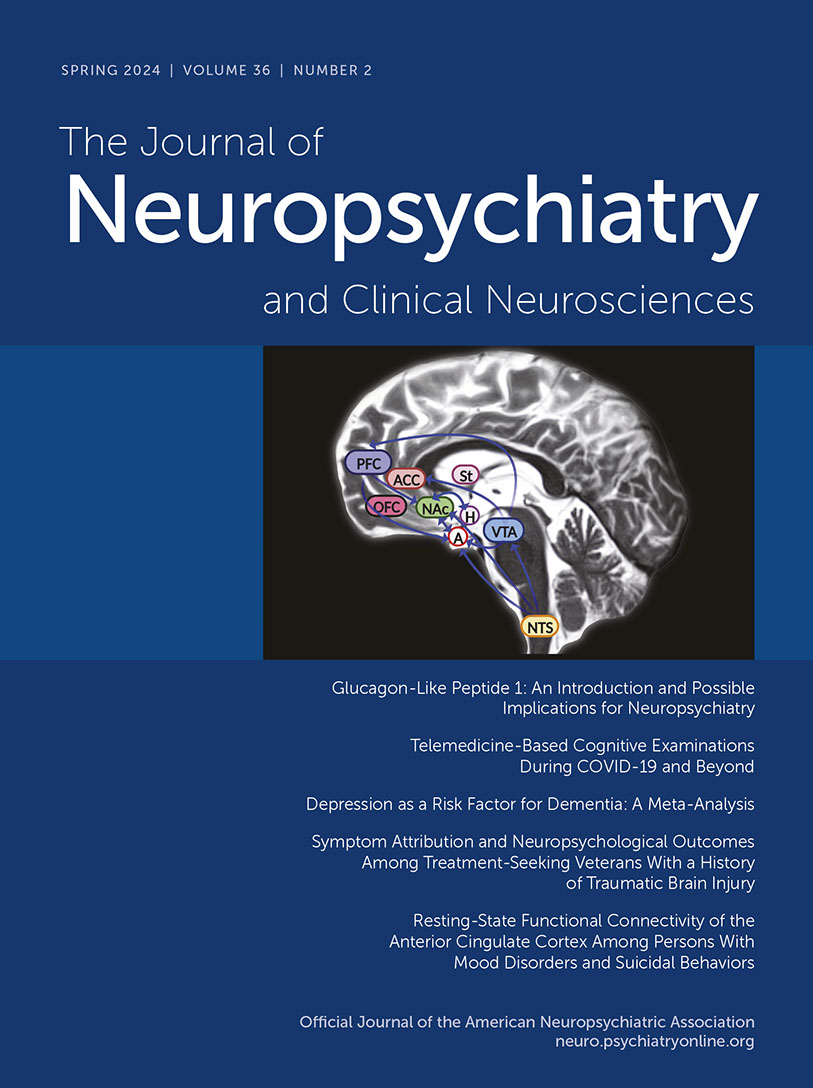Association of Win-Loss Record With Neuropsychiatric Symptoms and Brain Health Among Professional Fighters
Abstract
Objective:
Repetitive head impacts in professional fighting commonly lead to head injuries. Increased exposure to repetitive head trauma, measured by the number of professional fights and years of fighting, has been associated with slower processing speed and smaller brain volumes. The impact of win-loss outcomes has been investigated in other sports, with several studies suggesting that individuals on losing teams experience more head injuries. Here, the authors hypothesized that fighters with a worse fight record would exhibit poorer brain health outcomes.
Methods:
The Professional Fighters Brain Health Study examined changes in neuropsychiatric symptoms, regional brain volume, and cognition among professional boxers and mixed martial arts fighters. These data were used to evaluate the relationship between win-loss ratios and brain health outcomes among professional fighters (N=212) by using validated neuropsychiatric symptom and cognitive measures and MRI data.
Results:
Retired fighters with a better record demonstrated more impulsiveness (B=0.21, df=48) and slower processing speed (B=−0.42, df=31). More successful fighters did not perform better than fighters with worse records on any neuropsychiatric or cognitive test. Retired fighters with better fight records had smaller brain volumes in the subcortical gray matter, anterior corpus callosum, left and right hippocampi, left and right amygdala, and left thalamus. More successful active fighters had a smaller left amygdala volume.
Conclusions:
These findings suggest that among retired fighters, a better fight record was associated with greater impulsiveness, slower processing speed, and smaller brain volume in certain regions. This study shows that even successful fighters experience adverse effects on brain health.
Access content
To read the fulltext, please use one of the options below to sign in or purchase access.- Personal login
- Institutional Login
- Sign in via OpenAthens
- Register for access
-
Please login/register if you wish to pair your device and check access availability.
Not a subscriber?
PsychiatryOnline subscription options offer access to the DSM-5 library, books, journals, CME, and patient resources. This all-in-one virtual library provides psychiatrists and mental health professionals with key resources for diagnosis, treatment, research, and professional development.
Need more help? PsychiatryOnline Customer Service may be reached by emailing [email protected] or by calling 800-368-5777 (in the U.S.) or 703-907-7322 (outside the U.S.).



